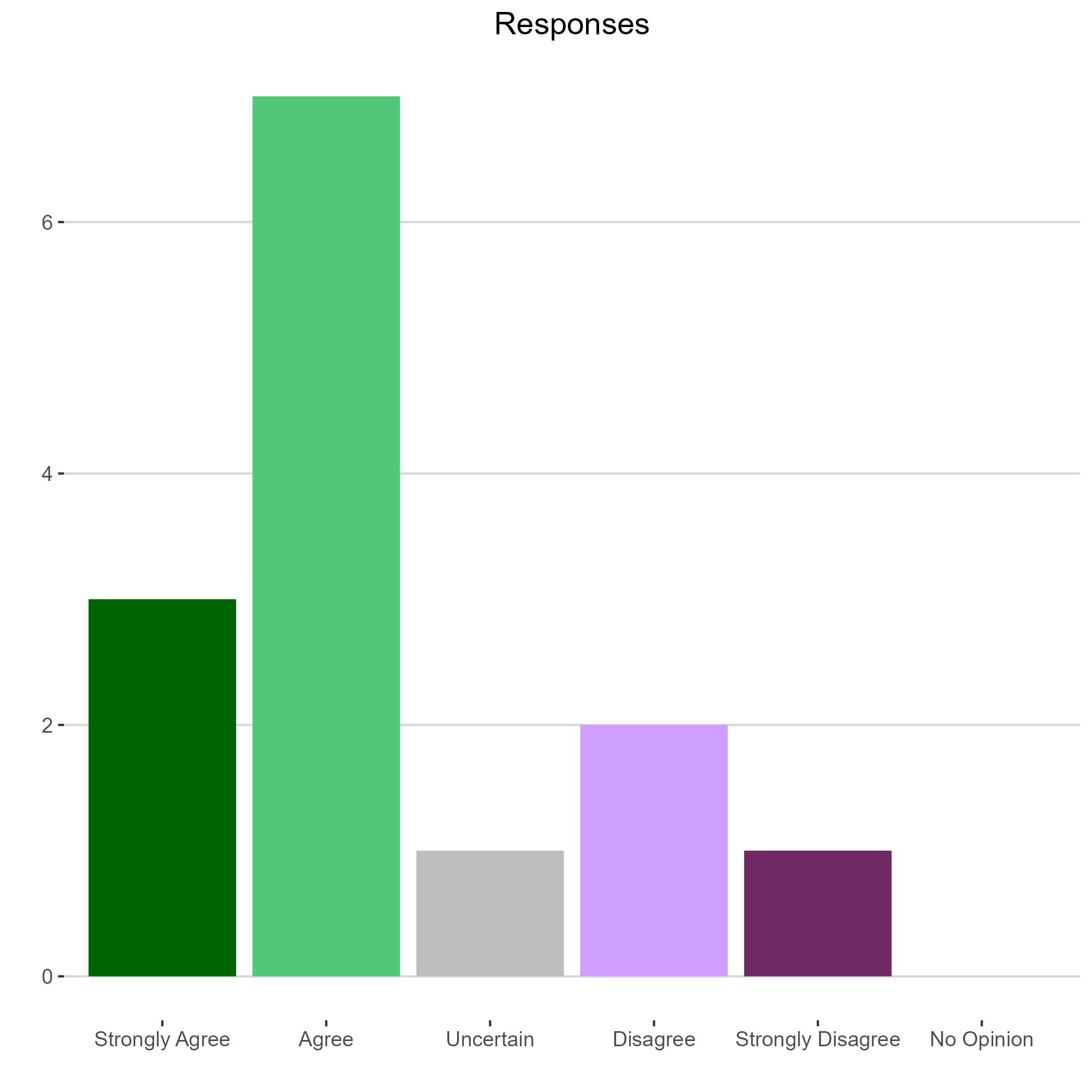| Jonathan Andreas |
Bluffton University |
Agree |
7 |
If the BLS becomes unreliable, states and private businesses will try to step up to serve its functions, but they cannot replace the BLS because there are economies of scale in gathering national data, so it is expensive and inefficient for each state to try to duplicate the efforts of the BLS and the information is a public good that will be undersupplied by for-profit companies. Plus, good monetary policy requires good data and everyone suffers from bad monetary policy. Again, consider Argentina/Venezuela. I expect to avoid anything resembling their fate, but Niemöller reminds us that it is important to speak out early before worse things come to pass. |
| David Brasington |
University of Cincinnati |
Agree |
10 |
IF trust in national data is lower, that increases reliance on state-level data. To the extent that businesses access this more decentralized data, state-level data becomes more important. |
| Ron Cheung |
Oberlin College |
Agree |
9 |
|
| Kevin Egan |
University of Toledo |
Agree |
8 |
Yes, high quality substitute data is important if truly the BLS data diminishes in quality. |
| Will Georgic |
Ohio Wesleyan University |
Agree |
5 |
|
| Christian Imboden |
Bowling Green State University |
Uncertain |
5 |
|
| Michael Jones |
University of Cincinnati |
Disagree |
6 |
The appointment of Antoni to the BLS is just the further continuation of the politicization of society. For decades, nominations to the judicial branch, and the Supreme Court in particular, have been based on ideological grounds, rather than legal qualifications. And with recent presidential administrations, we are now seeing economist roles being chosen based on ideology. We are seeing the fruit of political seeds sown with Congress' rejection of Bork in the 1980s. All that to say, I don't think the loss of institutional trust that we've seen at the federal level, has much impact at the state level. |
| Charles Kroncke |
Mount Saint Joseph University |
Strongly Agree |
10 |
State level data will be the only reliable source but it will be difficult to compare states. Different states will likely have different data collection methods. |
| Bill LaFayette |
Regionomics |
Uncertain |
6 |
I have not followed the Ohio LMI numbers closely, but I know that their numbers feed into the national numbers. I am not sure that they would be better. |
| Trevon Logan |
Ohio State University |
Agree |
8 |
|
| Joe Nowakowski |
Muskingum University |
Agree |
9 |
It depends on how ideological state data become. |
| Curtis Reynolds |
Kent State University |
Agree |
8 |
This is probably true, but state-level data has never been seen as reliable or important as the BLS data (which is sort of the "gold standard" for this type of data). People and firms could turn to state-level data but only if they believe that it is accurate. Producing high-quality and frequent economic data takes a lot of resources, probably requiring Ohio to invest more in producing that data than they currently do. I do not expect Ohio to make that investment. |
| Kathryn Wilson |
Kent State University |
Uncertain |
5 |
It is important that government data is produced and reported in a manner that is accurate and truthful. The Bureau of Labor Statistics has always done that (and still does) -- revisions of data as more information becomes available is a part of the process and there is no reason to have reduced trust in BLS. That said, if people lose trust in BLS data, it seems likely they will also lose trust in state-level economic data. |
| Rachel Wilson |
College Board |
Strongly Agree |
10 |
Yes, but relying more on state-level data is a costly and an uneven substitute. If states vary in their ability or willingness to invest in high-quality data collection, the result will be inconsistent and less useful than national statistics. The costs of duplicating efforts at the state level would be significant, and there’s the added risk that state-level data could become further politicized along partisan lines. |




